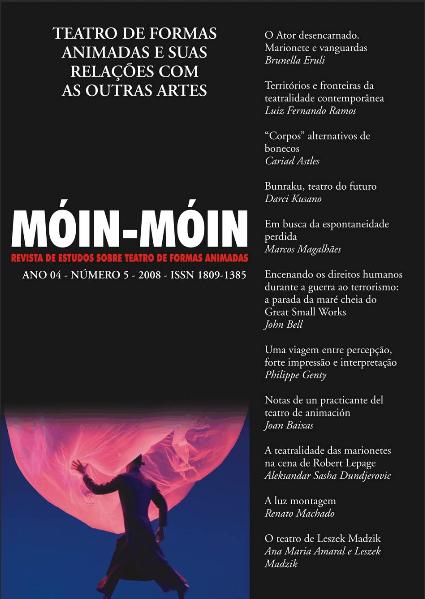Performing Human Rights During The War On Terror: Great Small Works’ Rising Tide Parade
DOI:
https://doi.org/10.5965/2595034701052008119Abstract
In the spring of 2006, Great Small Works was commissioned by the
Lower Manhattan Cultural Council to make an art parade to kick off the River to River Festival, a summer-long series of concerts and performances whose goal, it seems to me, was to bring back a sense of lively public culture to the still-traumatized environs of 2001’s “Ground Zero.” While previous years’ parades had been collections of New York City artists’ processional sculptures, we decided to make our River to River parade a street theater event, a politically themed meditation on rivers, streets, and the dynamics of power in communities faced with transformation and change. In this, of course, we were following the kinds of traditions which Bread and Puppet Theater, Welfare State International, and other groups in the seventies had pursued; as well as the rich processional traditions of the 1920s and 30s; centuries of outrageous carnival street performance, Renaissance outdoor spectacle; and even the origins of Greek tragedy in the wheel-mounted processional boats – the carre navalis – which some have considered the roots of European carnival.
Downloads
Downloads
Pubblicato
Come citare
Fascicolo
Sezione
Licenza
Ao submeter um artigo à Móin-Móin Revista de Estudos Sobre Teatro de Formas Animadas e tê-lo aprovado os autores concordam em ceder, sem remuneração, os seguintes direitos à Revista: os direitos de primeira publicação e a permissão para que a Revista redistribua esse artigo e seus metadados aos serviços de indexação e referência que seus editores julguem apropriados.
Os artigos cujos autores são identificados representam a expressão do ponto de vista de seus autores e não a posição oficial da revista Móin-Móin.
Plágio, em todas as suas formas, constitui um comportamento antiético de publicação e é inaceitável. A Revista Móin-Móin reserva-se o direito de usar software ou outros métodos de detecção de plágio para analisar os trabalhos submetidos.
![]()
Este obra está licenciado com uma Licença Atribuição-NãoComercial 4.0 Internacional






